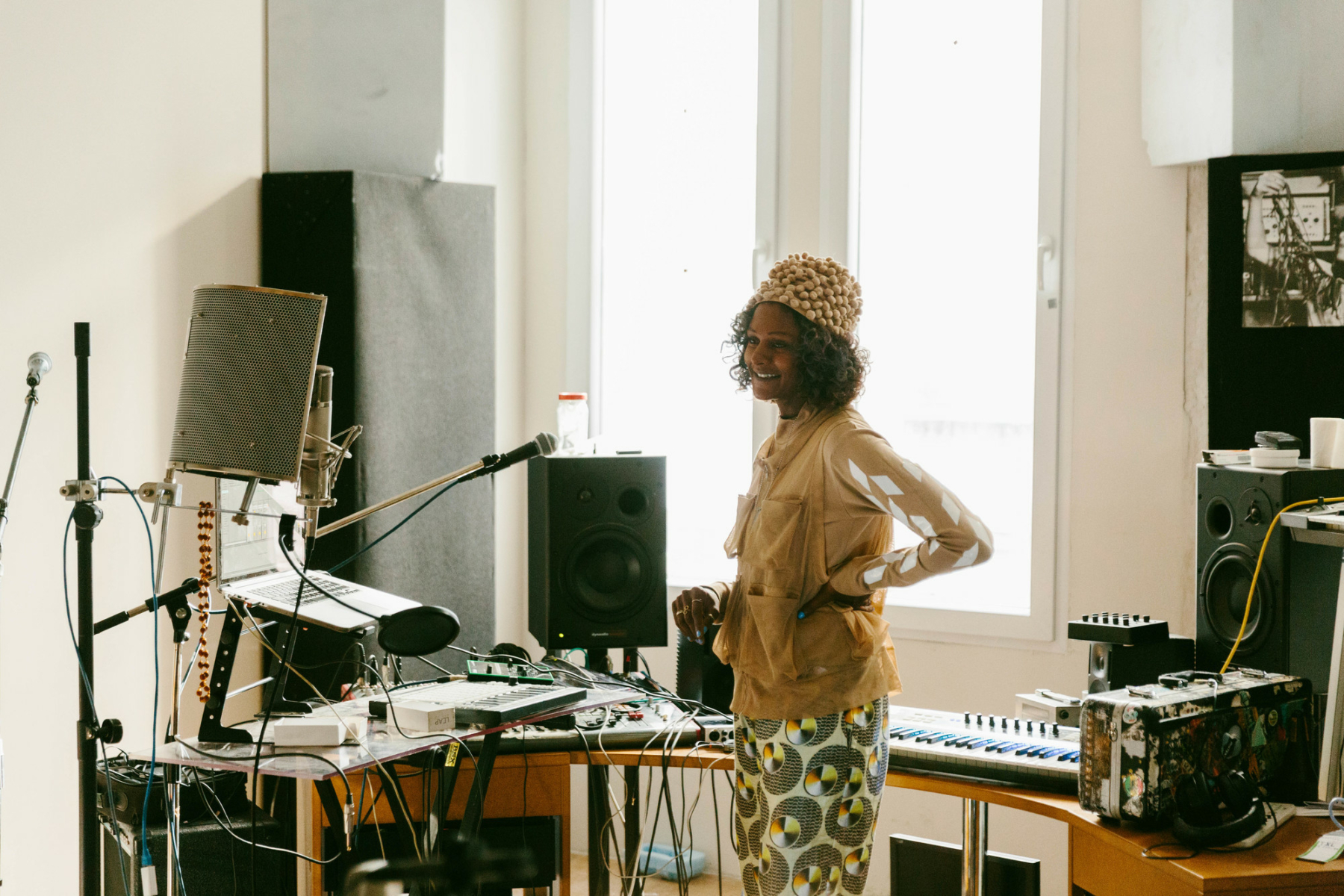Daylight is dwindling as Sasha Perera twiddles the knobs on the equipment surrounding her: a “Maschine Jam”, a midi-keyboard, all kinds of audio interfaces, a voice transformer—various signals channeled into the computer at her command.
Cables and cigarette butts lie all over the floor, a drum set off to one side, while speakers blare out a track reminiscent of juke, footwork, and jungle vibes, running at around 150bpm. Here, in this rehearsal space and The Elisabethhof, a typical industrial courtyard from the end of the 19th century, Sasha Perera carves out sounds, excavates material from the depths of her Mac drive, tinkers with tunes and reassembles them to form the music in-between genres that is Perera Elsewhere.
“I hate the formulaic aspect of pop music,” says Perera, “but I like the bridge in a pop song that might lead to more unexpected sequences of chords,” she adds. This transitory quality applies to her approach to songwriting and production. Perera has learned to tune out her surroundings, immersing herself into on-screen production environments. When she gave a workshop for arts students at Sayner Hütte, an industrial heritage sight south east of Cologne, she asked the students to make field recordings. Some of them, Perera would use later for her productions. “This [music] process is something that always arises from different places,” she says.
Perera’s music today is a journey away from the famed electronica trio Jahcoozi, a group she co-founded in the early noughties. In her own words: “I make pretty indescribable music.” Listeners on the web tagged the style of her first album as ‘doom folk’, something she “merely adopted as I enjoy the conversation with the listener in the internet age.” Her music could more recently be described as a heady mix of different spheres from organic to synthetic sounds and deep songwriting.
“I like the bridge in a song that might lead to unexpected sequences of chords.”
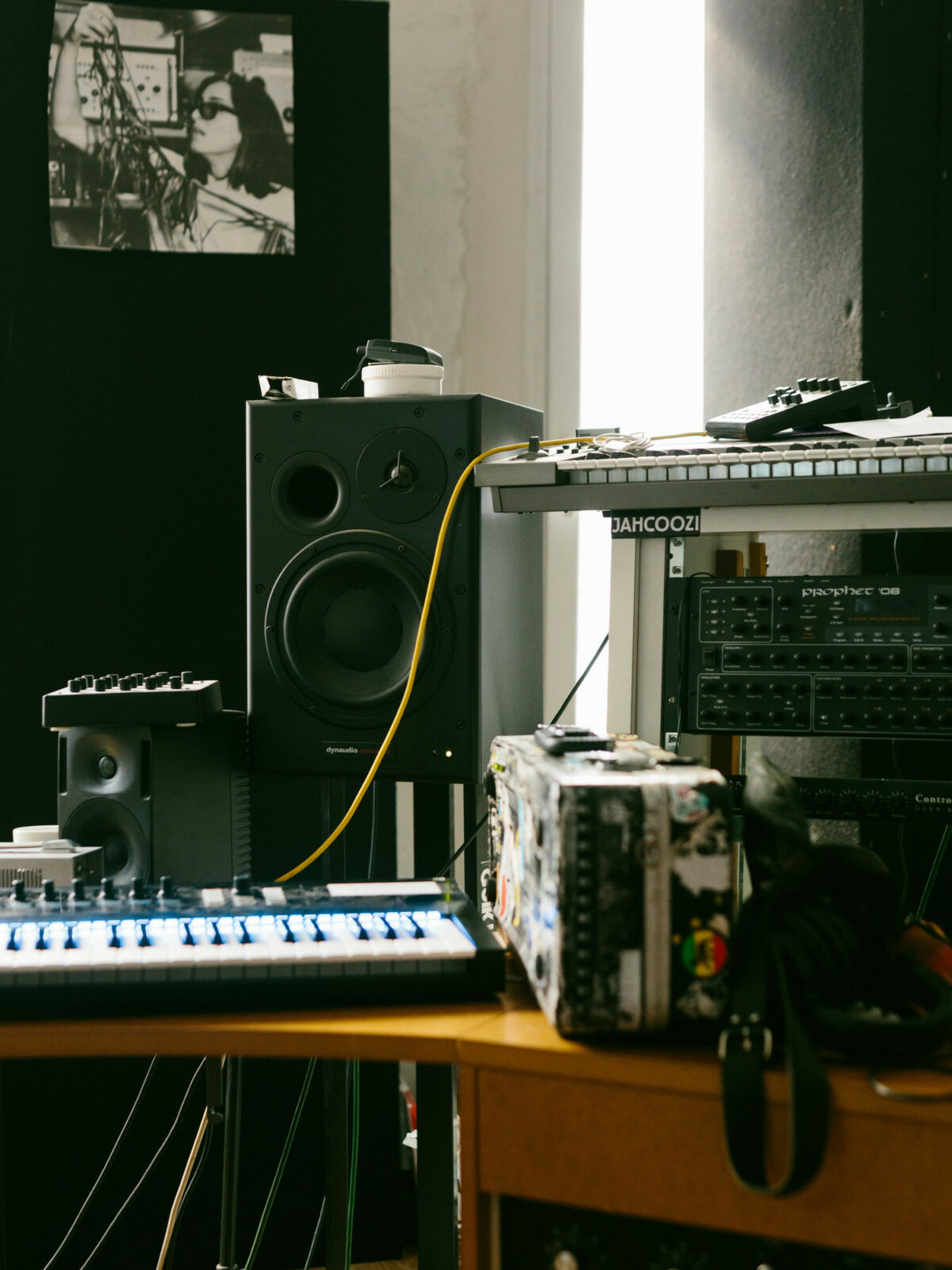
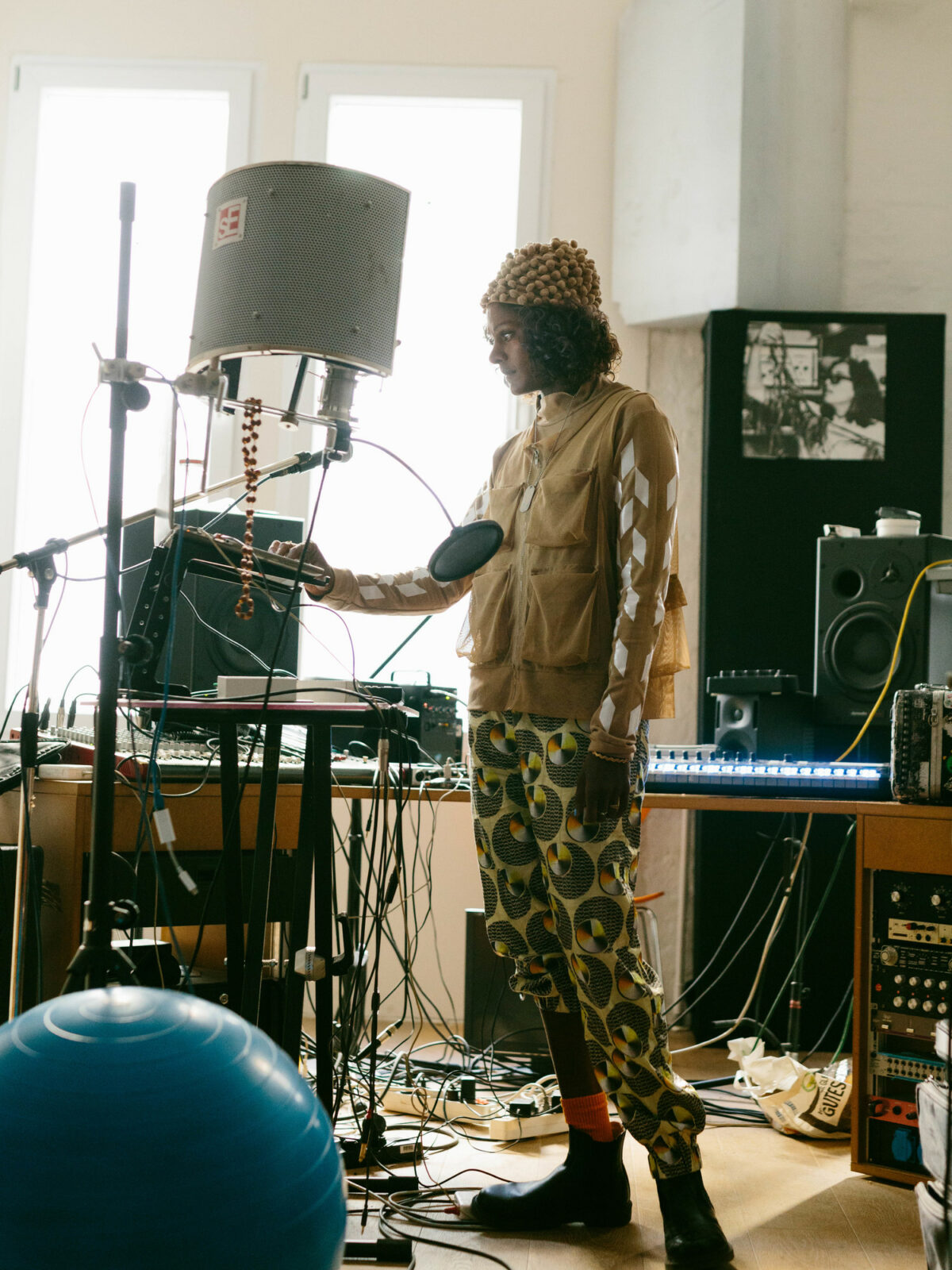
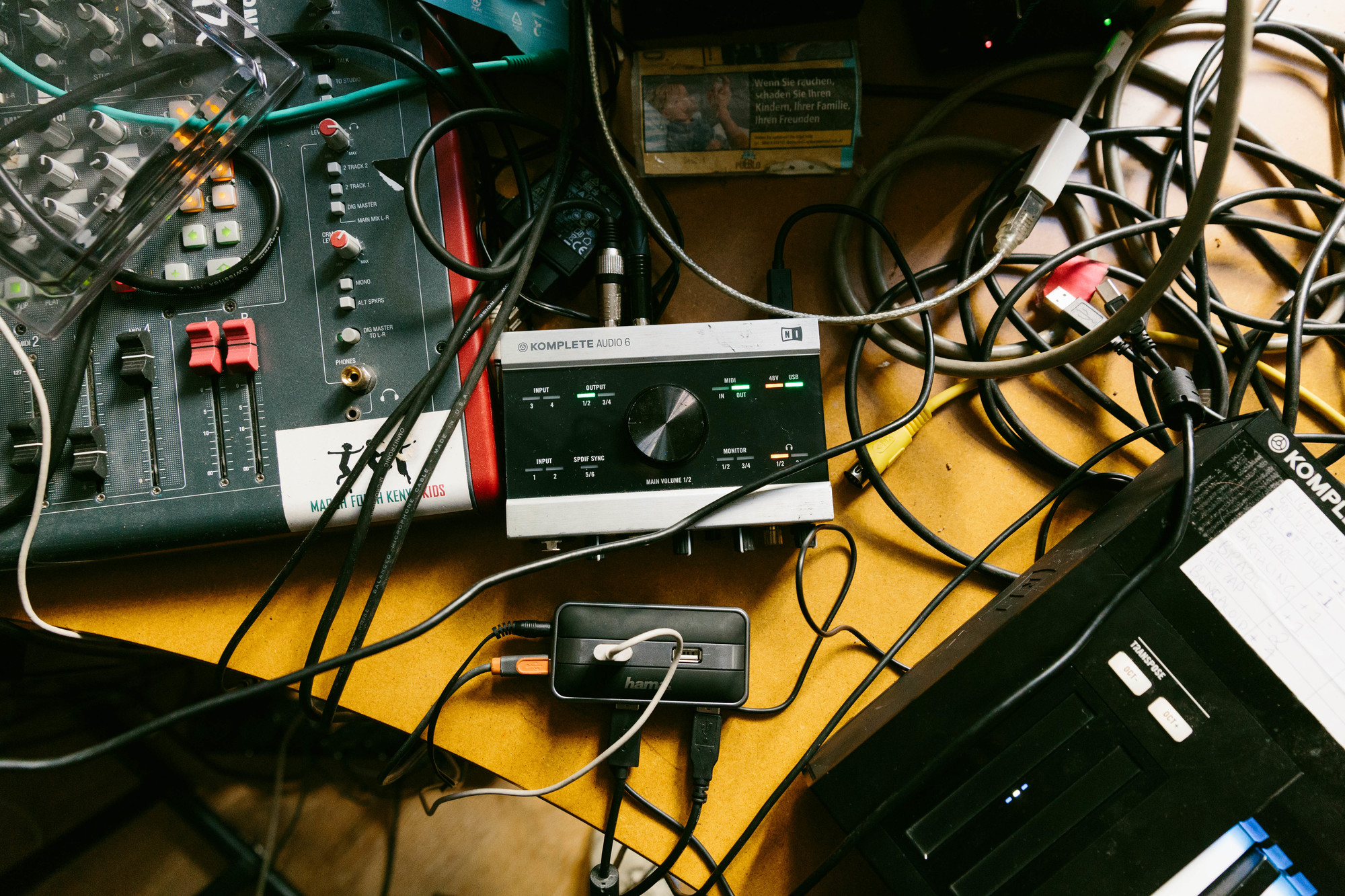
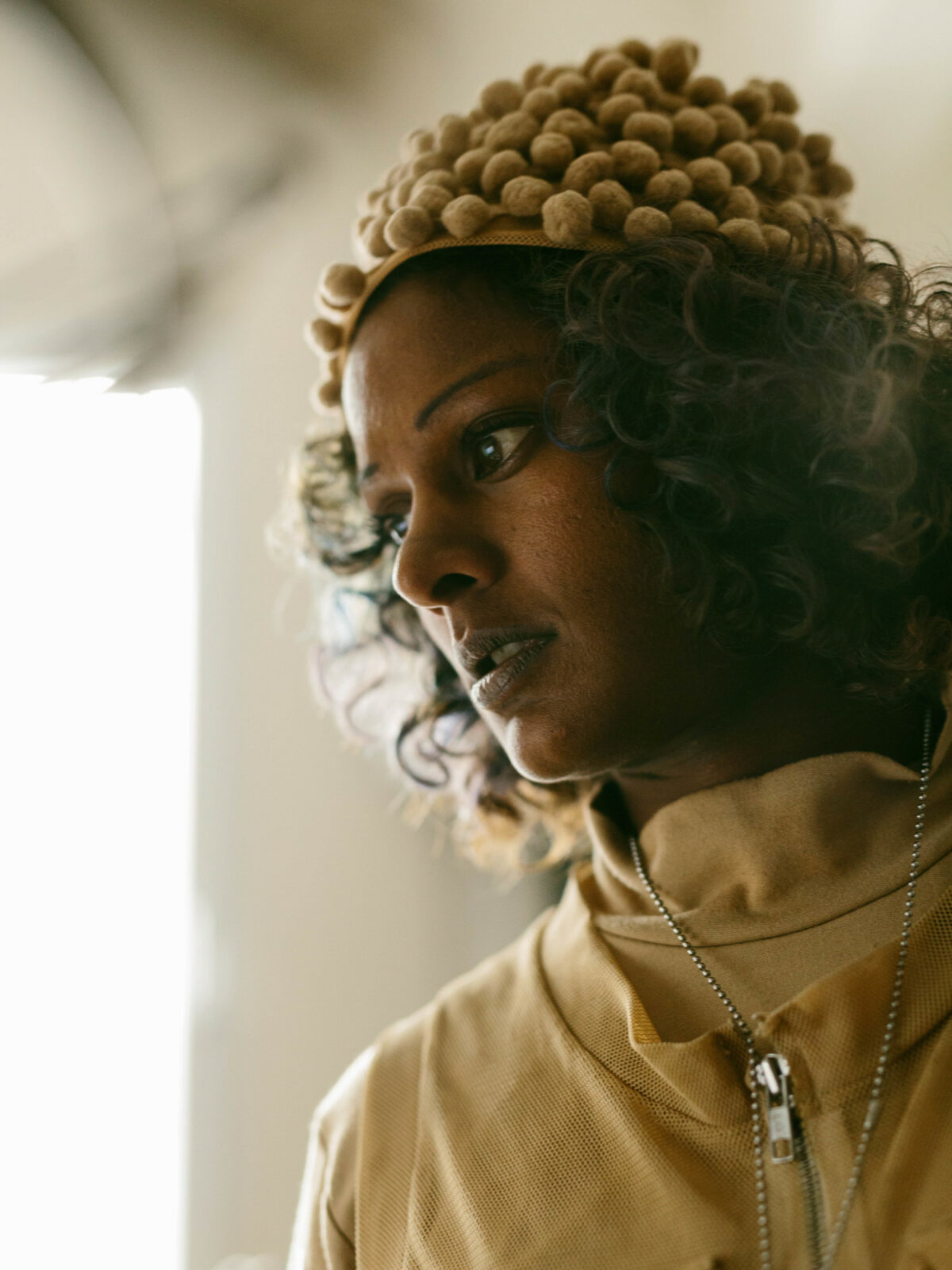
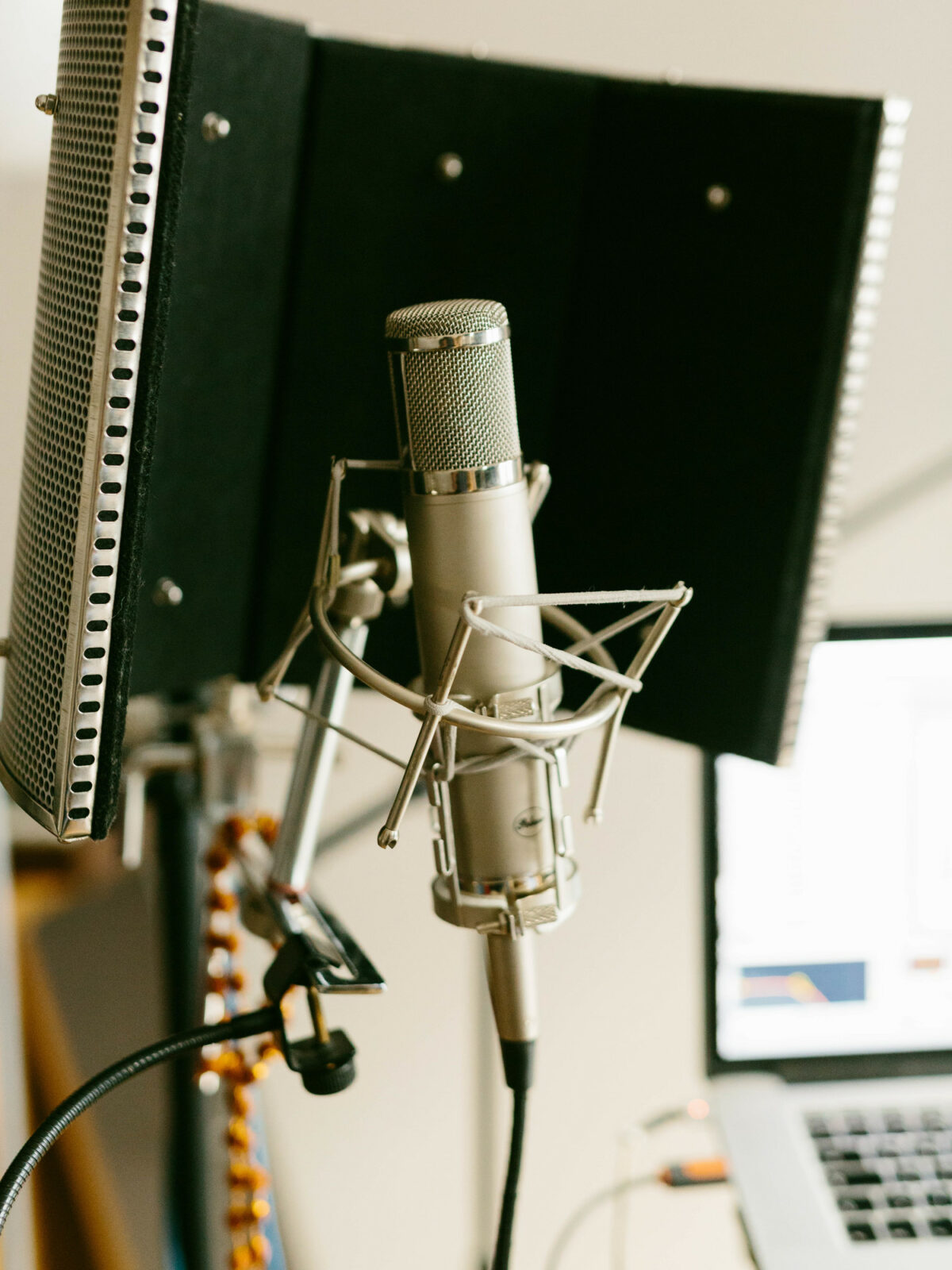
Born in 1978 in London, she grew up on what she calls the slip-road, a portion of the A3 between Putney and Kingston: “a non-place between places where people wanted to live,” she says, shaking her head, imitating cars zooming by in front of her house. Good thing there was a tube station nearby, making it an easy escape into London for parties before taking a night bus home.
Perera’s parents are first generation immigrants from Sri Lanka and their expectations didn’t include her becoming a musician. She remembers the vibe being very strict, as in: ‘Ok, so, when you’re finished studying you can move out, have an arranged marriage.’ “That was my dad’s perception, which was based on the ’80s and a lot has changed since then, obviously,” she says. Her mother was a dentist and in that profession she could combine work and family, and thus deemed it a suitable path for Perera, too.
Her parents got divorced when she was ten years old. She got into music and learned the trumpet. “I have to give my mum some credit for that because it was definitely an instrument that Asian chicks would not learn,” she says. Six years later, love paved the way off the A3 and into a less restricted life away from home. At the age of 16, Perera moved in with her then boyfriend who lived in Finsbury Park, leaving her Wimbledon schoolmates afraid she might get mugged there.
This move further into London introduced Perera to a variety of music, too. “Notting Hill carnival was eye-opening, so many sound systems around there. I’d go to Metalheadz shows and Warp Records were a big thing for me back then, too. Everybody was listening to Aphex Twin, watching Chris Cunningham videos,” Perera remembers. “It was a really great time in London, very multicultural as well.” Of her first stint in Germany, she paints a different picture. Back in 1994, Perera stayed outside of Munich on a student exchange. “[At that time] there was this vibe like ‘lock up your daughters’ because those people, and often young men, were coming, when basically, they just wanted to hang out.”
“I hate the formulaic aspect of pop music.”
As her German improved Perera moved on to study European Politics and German. A short stint in Cologne in 2000 and a first visit to Berlin—to Perera, a hippie’s haven, where people would hand out their keys to a strangers so they could stay in their apartment—left her “shocked about the level of trust that you wouldn’t get in London” and solidified her plan to live there.
Perera was encountering the history she knew out of text books, cycling down Karl-Marx-Allee, walking across Rosa-Luxemburg-Platz and encountering a phenomenon she knew from Cologne: people of color would greet her in the streets, which was not a common sight in bigger German cities at the beginning of the noughties. It was a time when companies enrolled people of color because “they needed a black chick from London,” she says about her first job in Berlin, a multimedia gig with a company that prospered before—and collapsed after—the dot-com heyday. Even though Berlin is an international city today, she’d still have funny encounters in swimming pools, with puzzled older women muttering ‘I always thought people from the tropics couldn’t swim.’
“When I take a cab to a DJ gig and I explain to the driver what I do it might change his perception about women in this line of work.”
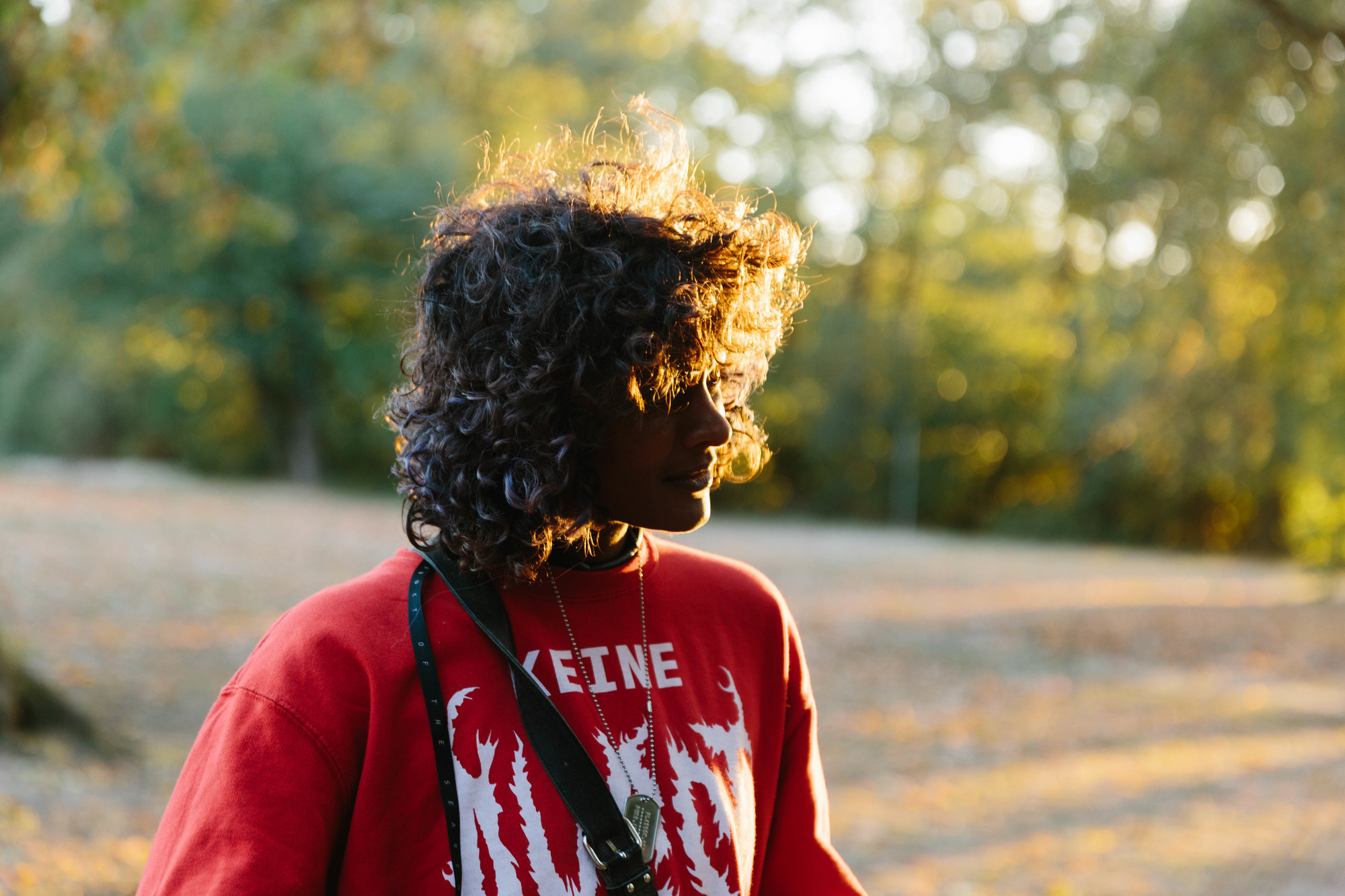
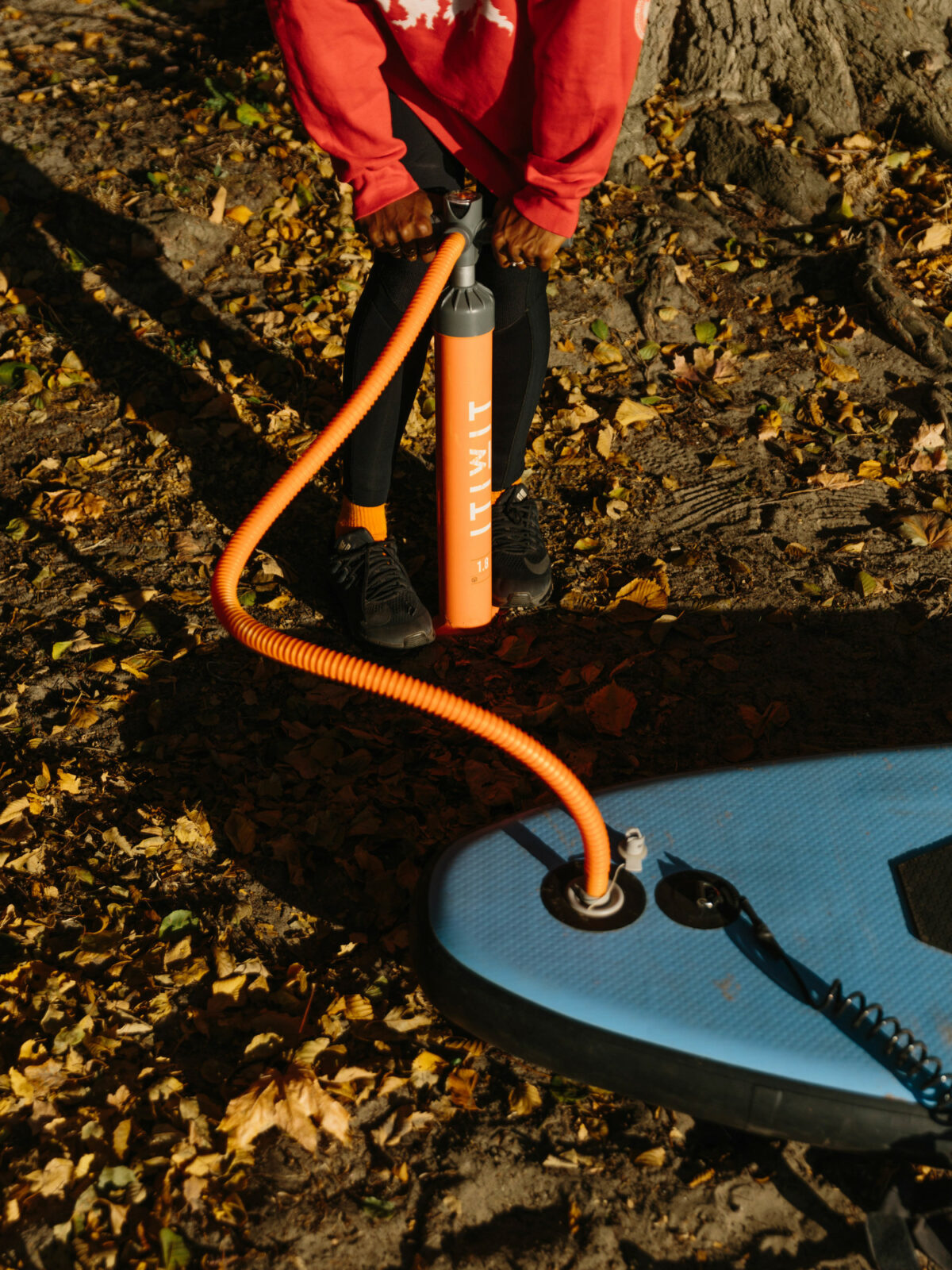
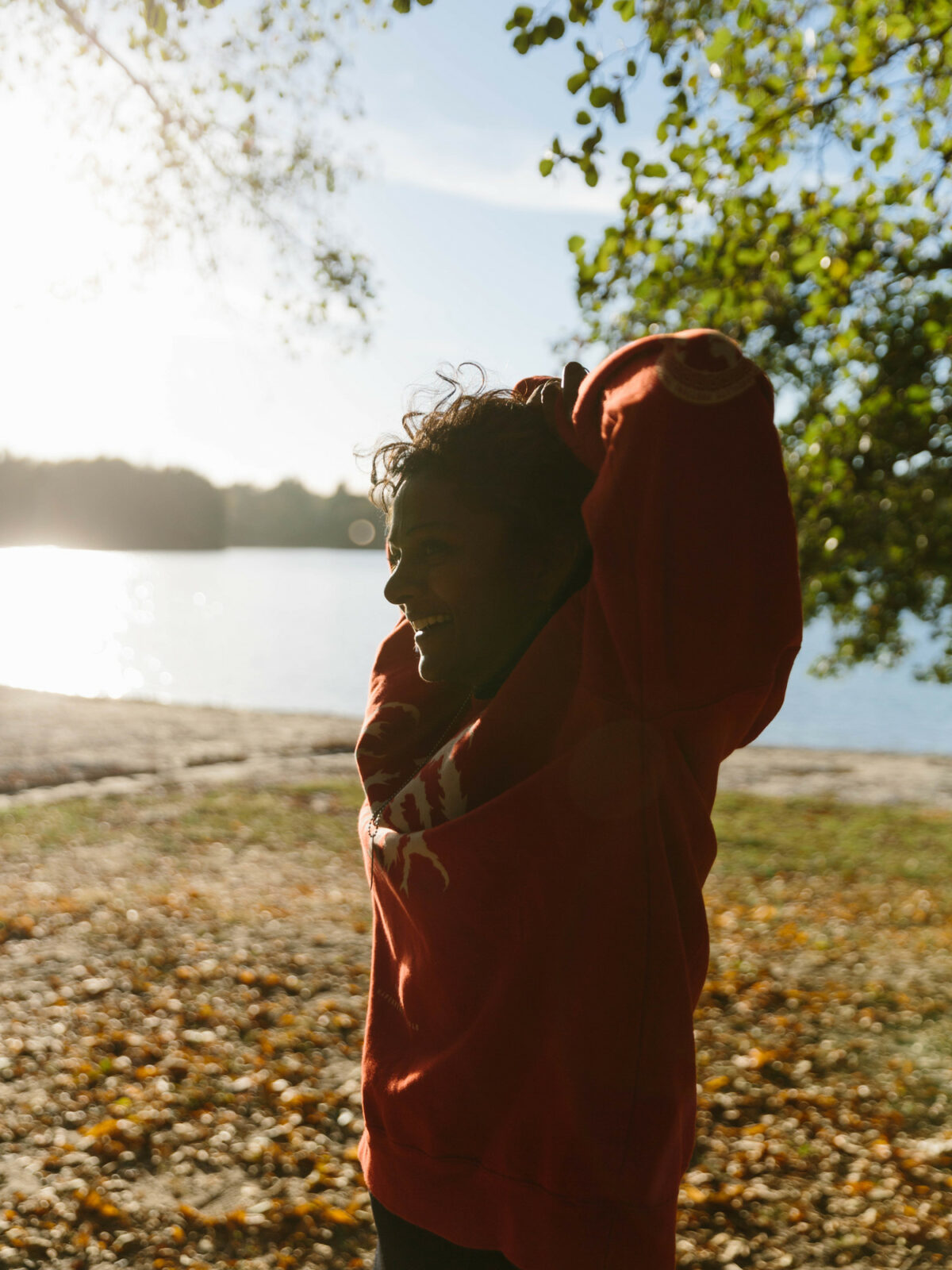
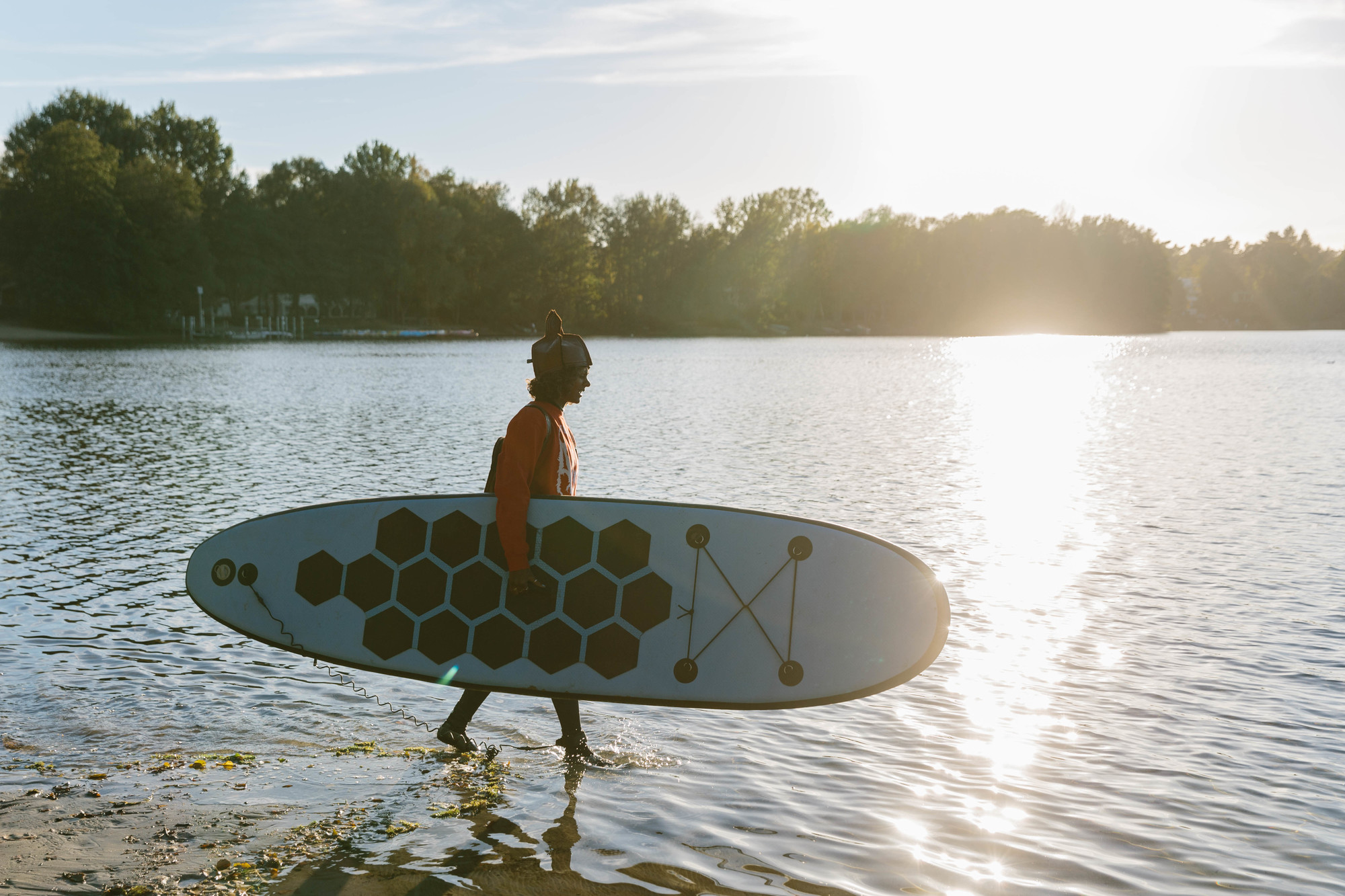
In terms of multiculturalism, Perera has observed how Germany has changed over the past twenty years, “and it will change even more over the next twenty years and these AfD-blah-blahs will simply get outnumbered,” she says, referring to a German far-right party, which currently constitutes the third largest group in the parliament. There is, in her eyes, a parallel between the Great Britain she grew up in during the ’80s and Germany today: not yet there in fully accepting different skin tones.
After WWII a lot of people immigrated to Britain from its former colonies. And yet, some fields were hardly accessible for non-whites in back then. Since he felt his daughter was highly argumentative but she wouldn’t want to be a dentist, Perera’s father suggested she could be a lawyer before adding that lawyers are white. “That was his perception, which was based on the ’80s but it changed a lot,” she says. There are media personalities now, TV presenters of all ethnicities in Britain and to Perera one turning point was a Benetton ad portraying a roster of sixteen different people in all kinds of skin tones. At least that was a step forward in how far Britain got its way around “marketing multiculturalism”, as she calls it.
Perera made good use of her time in Berlin, starting Jahcoozi, organizing the events series Grime Time, which brought Grime to Berlin for the first time, giving workshops on the Ivory Coast, in Burkina Faso and other African countries to teach local talent how to DJ or produce their music. She’s touring all over the world as a DJ and performer, which in turn influences her work. Perera’s music is now hard to pinpoint. It’s driven by a dense atmosphere, various elements from IDM (Intelligent Dance Music), and effects that are layered in the production.
“You have to stay communicative and diverse, that’s the most political you can be.”
Since her times with Jahcoozi, Perera has become less politically direct in her lyrics and more abstract in her approach to songwriting. Her current productions are also increasingly abstract sound-wise, and she claims that an artist can take a clear political stance on an issue but doesn’t necessarily have to communicate it in an overtly direct way in their works: “It’s more about bothering to take an extra minute with people,” she says. “When I take a cab to a DJ gig and I explain to the driver what I do it might change his perception about women in this line of work. You have to stay communicative and diverse, that’s the most political you can be in that very moment, at least.” Change happens on a micro-level, too, and that’s how her musical output, solo, as Perera Elsewhere, shifts from release to release. This process is heavily impacted by her use and appropriation of technology. From her first release Everlast to the second, All Of This and her current EP Drive, “you can basically listen to me, learning to produce myself,” Perera says.
Sometimes, when she needs to unplug from her studio space or the city, she heads to a lake. Although she didn’t seek proximity to nature in London, this became a factor when she moved to Berlin: “It’s amazing, you have so many nice areas you can go to really quickly. It’s almost like God built Berghain to keep the tourists away from the lakes,” she says, laughing. Perera is a surf addict, into all kinds of sports, like snowboarding, and two injured knees tell the story of that. As there are no waves near Berlin, she turns to the paddle board.
About an hour’s drive outside of the city center, there’s Groß Glienicker See, a place she’s drawn to because of its history—the old border between GDR and Germany runs through it, spies would meet here. “I still think it’s fascinating that this place was only recently the centre of extreme tension in terms of world politics,” she says. “People really thought WWIII was around the corner and nation states behaved accordingly. I do wonder how fragile our peace is and still sometimes find it incredible how life can change so fast that now some brown, British chick can be paddling free here for fun in a wet suit and a sweater saying ‘Keine Angst’.”
A couple is having a picnic, some girls looking for good, ‘grammable’ angles and a curious woman is pretending to take pictures of trees and flowers while sneaking in the occasional shot of that lady on the lake, paddling away and that photographer on the shore. She directs her to paddle towards him, then away, and she goes on, further, into the lowering sun, a distant voice, saying “such a great thing to do!”
“It’s almost like God built Berghain to keep the tourists away from the lakes.”
On her Los Angeles-based label Friends of Friends Music, Perera has released two albums and one EP. Her new EP is called Thrill and will be released on September 6th, first single Yeah Yeah is out on June 26th. Listen to her music and watch out for future collaborations and shows. Find out more about creatives from London and Berlin in our archives.
Text: Fabian Ebeling
Photography: Gene Glover
